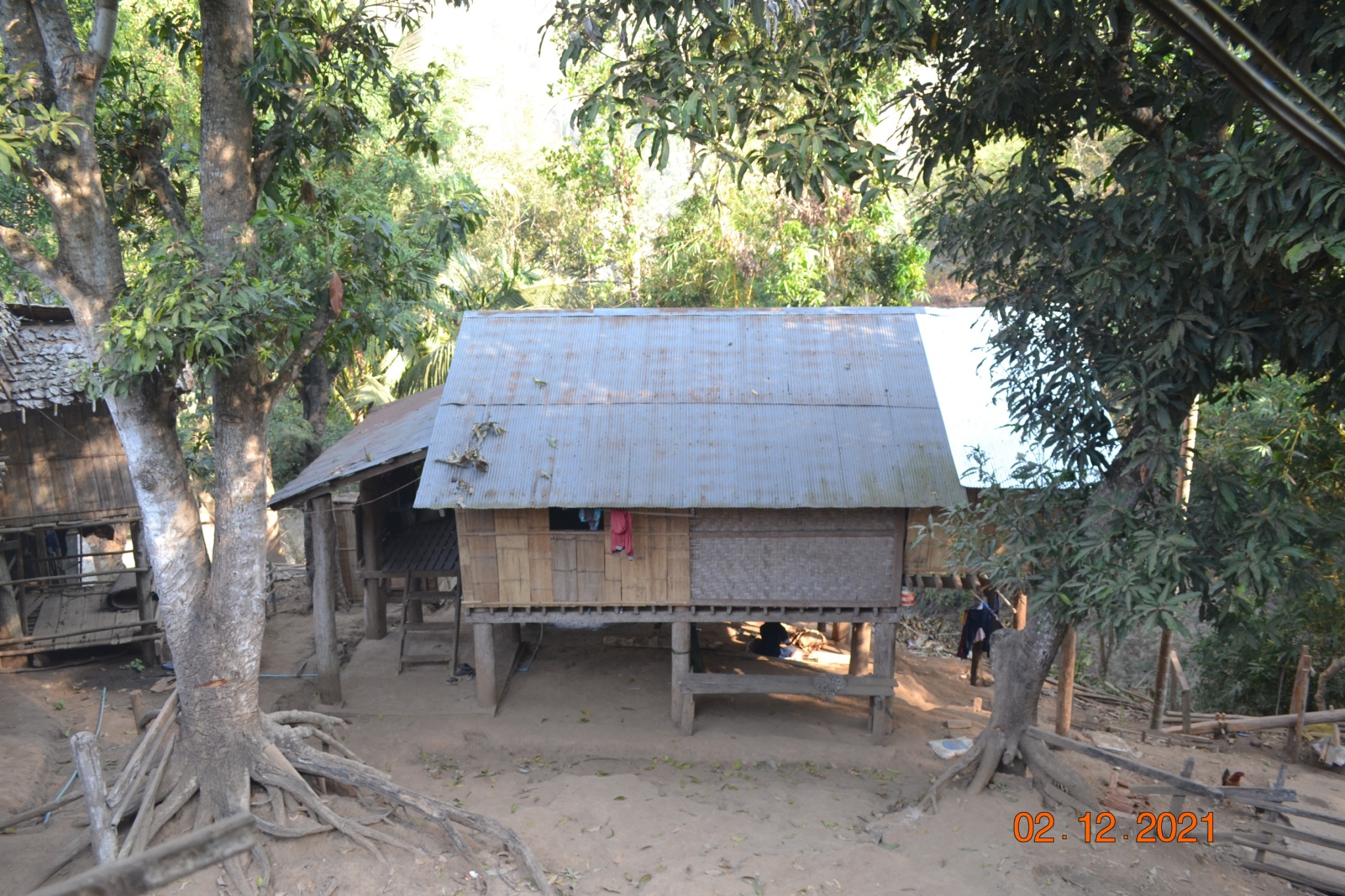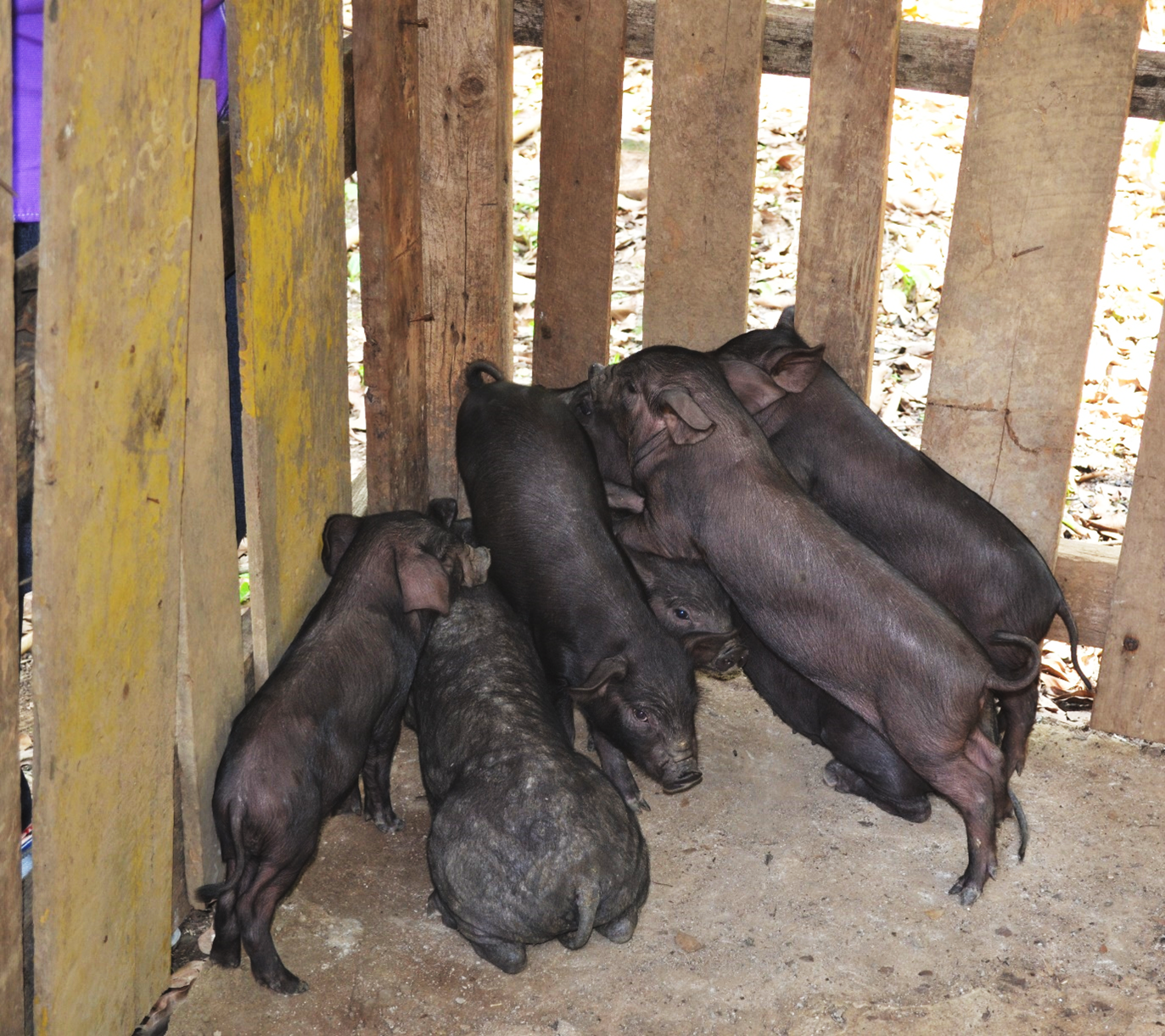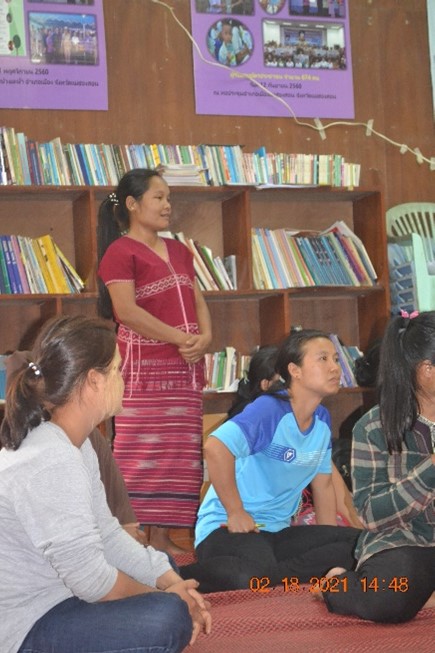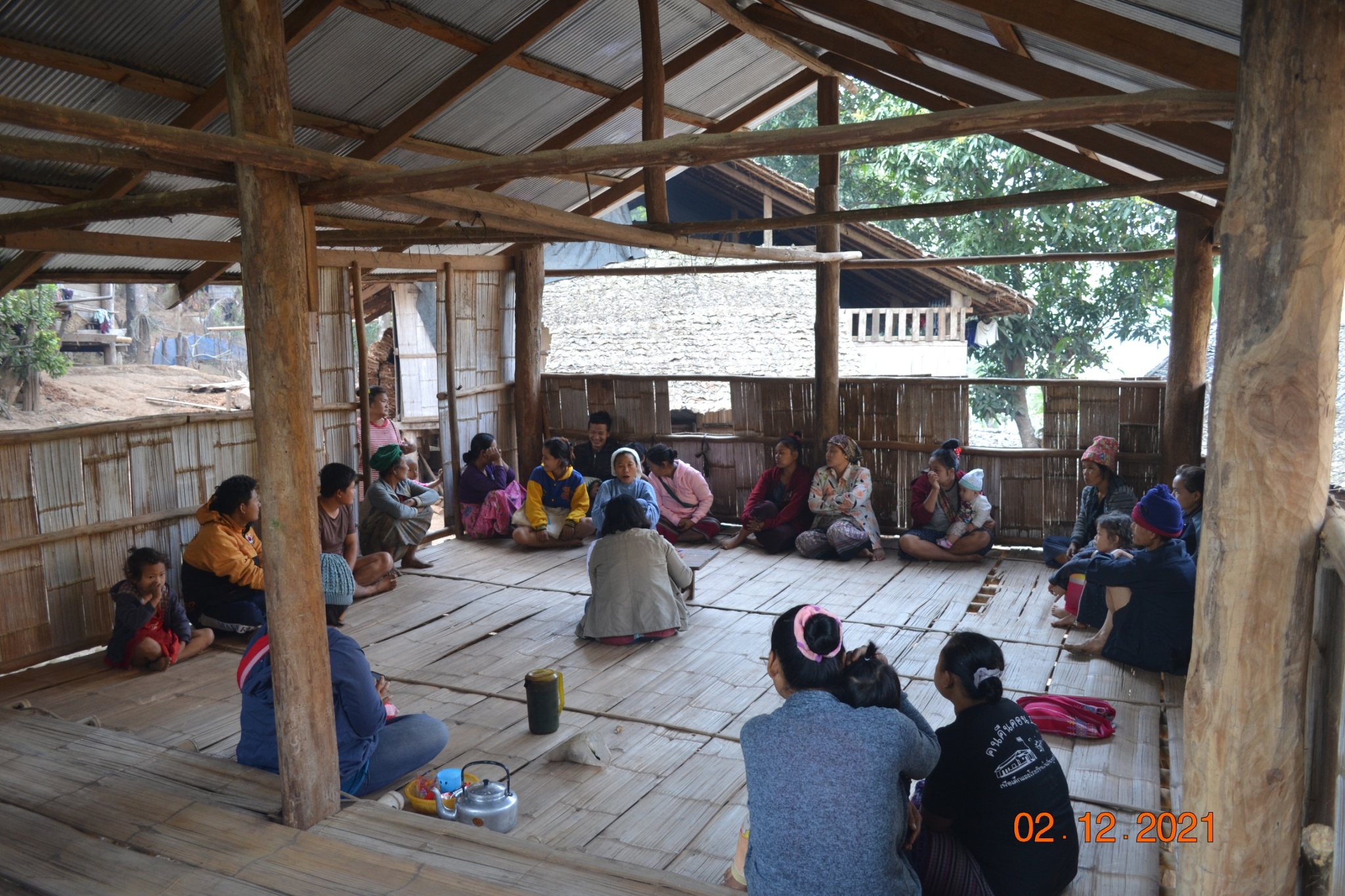“Rice and salt are fundamentals of life, but pigs provide security for the family. As well as being the main source of food and used in important Karen rituals, pigs can also be sold to generate income for the family.”
This is a statement from Mariya, one of the beneficiaries of a project supporting food security and small income-generation for stateless women during the COVID-19 pandemic, initiated by the Legal Status Network Foundation, Thailand.
Mariya was born in Myanmar and followed her parents across the border to Thailand, settling down in the Sobmei District, Mae Hong Son Province. As a result, she has no legal registration status[1]. Fortunately, her five children were born in Thailand so are eligible to apply for Thai citizenship. Mariya and her family survive through subsistence farming and raising pigs. These animals are very important to the Karen culture because pork is the main food ingredient, and is an important component of the cultural and spiritual rituals in the Karen community. Pigs are also a source of income for the breeder.
Raising pigs to support the livelihoods of Karen people is an investment that only requires simple natural feed and time. Once pigs grow up and gain weight, they can be sold for their meat, producing enough money to not only feed the whole family but also to invest in other needs. However, in 2021, a swine fever outbreak infected almost all the pigs in the village, including Mariya’s. When the pigs died, Mariya lost all her savings overnight.
The situation has become worse with the COVID-19 pandemic which has severely affected all villagers. Young people working in the cities who usually send remittances to support their families are now unemployed, and their statelessness leaves them with few choices at this stage of their lives. For example, they are not able to access any social security or other financial help.
The Legal Status Network Foundation together with UNDP work under the “COVID-19 Social and Economic Response and Recovery” project, financially supported by the Japanese Government, to promote food security and sustainability for stateless women in Mae Hong Son by providing pigs to participating families, while encouraging sustainable agriculture with the aim of maintaining food security and livelihoods.
The project also provides assistance concerning the rights and empowerment of women to realize their roles to promote social equity, including access to state welfare and obtaining citizenship. Mariya and other stateless women in the village are participating in this project, allowing them to learn how to keep pigs in a more hygienic pit and stall to prevent and mitigate the impact of future swine fever outbreaks.
Beyond gaining knowledge and skills from training, importantly, Mariya is regaining hope. She looks at her small pigs and pictures them weighing 100 kilograms in three months’ time when they could be sold for 9,000 baht (approximately USD288). However, she has been recommended to keep the pigs for breeding the next generation. Before long, the number of pigs in her stall will increase, along with her mental stability and resilience.
Story in Thai version read here.
###
Written by Legal Status Network Foundation
###
[1] A person with no registered status cannot receive a birth certificate or register a house in their name since they do not have the status of a Thai national.

 Locations
Locations







